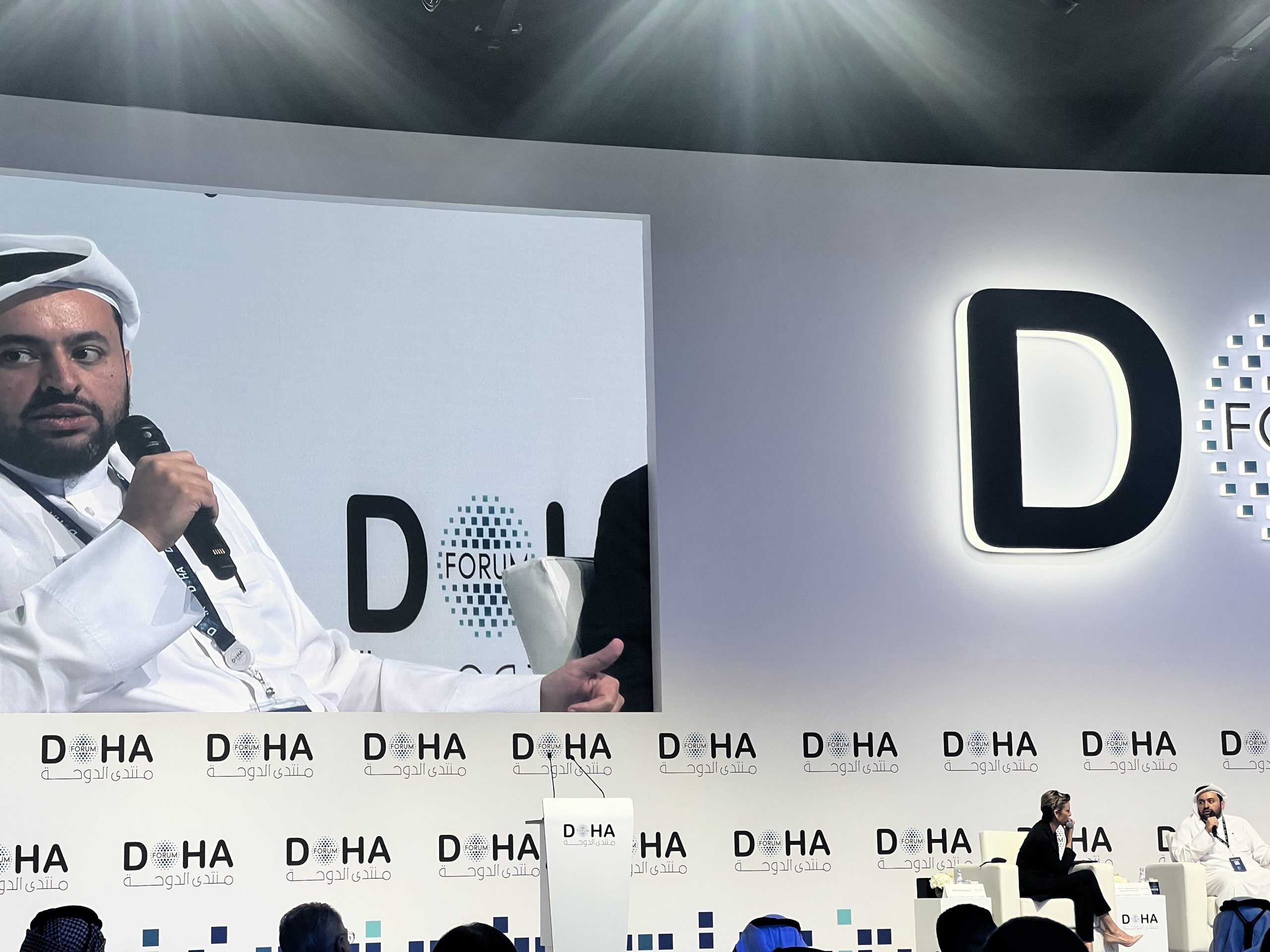Qatar had played a crucial role in mediating a temporary truce between Hamas and Israel, which began on November 24.
Qatar’s Minister of State at the Ministry of Foreign Affairs Mohammed bin Abdulaziz Al Khulaifi said his country was immune from false accusations about the Gulf state’s role in pushing for an end to the war on Gaza.
“The accusations are continuous on Qatar, which is quite normal. I could say that today we’re immune to hearing a lot of those false and baseless accusations that has specific targets to achieve,” the top Qatari diplomat and chief negotiator said on Monday during a panel discussion at the Doha Forum.
“We were focused, we were dedicated about this case and we’ve engaged in this case since day one and we’ve shown to the world that Qatar speaks with action and that’s what we’re trying to do it,” Al Khulaifi said.
“We’ve been very transparent since day one when it comes to providing humanitarian aid, helping the people of Gaza and building on the infrastructure over there,” he said.
“This is our obligations, our duty to our brothers and sisters in Palestine and we will continue to do that.”
The same sentiments were echoed by Qatar’s Prime Minister Sheikh Mohammed bin Abdulrahman Al Thani during the Doha Forum on Sunday, saying: “Unfortunately, we’ve been taking a lot of heat. Yet, as his highness Sheikh Tamim said to all foreign guests, whatever heat I’m taking, if it’s gonna save lives, I will take it”.
Qatar played a crucial role in mediating a temporary truce between Hamas and Israel, which began on November 24 and was renewed twice before ending on December 1, lasting a total of seven days.
Despite Qatar’s crucial role in the Israeli war on Gaza, Israeli officials have, on multiple occasions, openly stated their intention to carry out targeted killings of Hamas officials abroad, including on the Gulf nation’s soil.
Recent of which was the chief of Israel’s domestic security agency Shin Bet, Ronen Bar, who said: “The cabinet has set us a goal, in street talk, to eliminate Hamas. This is our Munich. We will do this everywhere, in Gaza, in the West Bank, in Lebanon, in Turkey, in Qatar. It will take a few years but we will be there to do it,” in a recording aired by Israel’s public broadcaster Kan last Sunday.
Regarding Qatar’s priorities, Al Khulaifi on Monday said: “It’s important to highlight that Palestine occupies a very important position in our foreign affairs agenda. It always has been the number one Arab case in our agenda.”
“Therefore, it’s important for us to contribute with the international community as much as we can to help support the Palestinian people,” he added.
Since October 7, the Israeli genocide in Gaza has so far claimed the lives of over 18,272 Palestinians.
“It is so important to me that there are Jewish voices who are saying ‘not in my name’, who are saying that Jewish tradition is also a universal tradition because […] this can’t be a religious war and it’s not my name,” said Daniel Levy, President of the US/Middle East Project, during the same panel discussion on Monday.
“Palestine, now, occupies this kind of symbolic space and it’s a kind of avatar of a rebellion against Western hypocrisy, against this unacceptable global order, and against the post colonial order,” Levy said.
One such instance is reflective in the federal lawsuit filed against U.S. President Joe Biden for not only failing to prevent but instead aiding what has been described as “genocide” in Gaza.
The lawsuit, filed by the Center for Constitutional Rights on November 13, points out their “failure to prevent and complicity in the Israeli government’s unfolding genocide,” citing Washington’s extensive financial and military support to Israel.
“There will be a day of reckoning for the United States. There’ll also be a day of reckoning for the United Nations in itself,” Dr Comfort Ero, the President and CEO of International Crisis Group said during the same Doha Forum panel discussion.
“But there’ll also be a day of reckoning for others who have allowed, sat on the altar of Gaza, on the altar of the two state solutions without doing the hard work of what it is to get us to that moment as well. Diplomacy itself has been exposed quite rightly on the altar of 2.3 million people as well,” she added.
Regarding the fate of the Palestinian people, their representative, Palestinian Ambassador to the United Kingdom Husam Zolmot said: “There was never in our history, a Palestinian president or leader who was not elected and chosen by his people and there shall never be.”
“Only the Palestinian people will decide upon that,” he added, during the panel discussion.
“We do have the structures and if we want to focus on anything to be done right now, we need to talk to the U.S. and the UK to do one thing now. Not to mediate because they are not able to do so given the voting in the Security Council, but to recognise the State of Palestine that will qualify them to be party and part of the conversation around the table,” the diplomat asserted.







